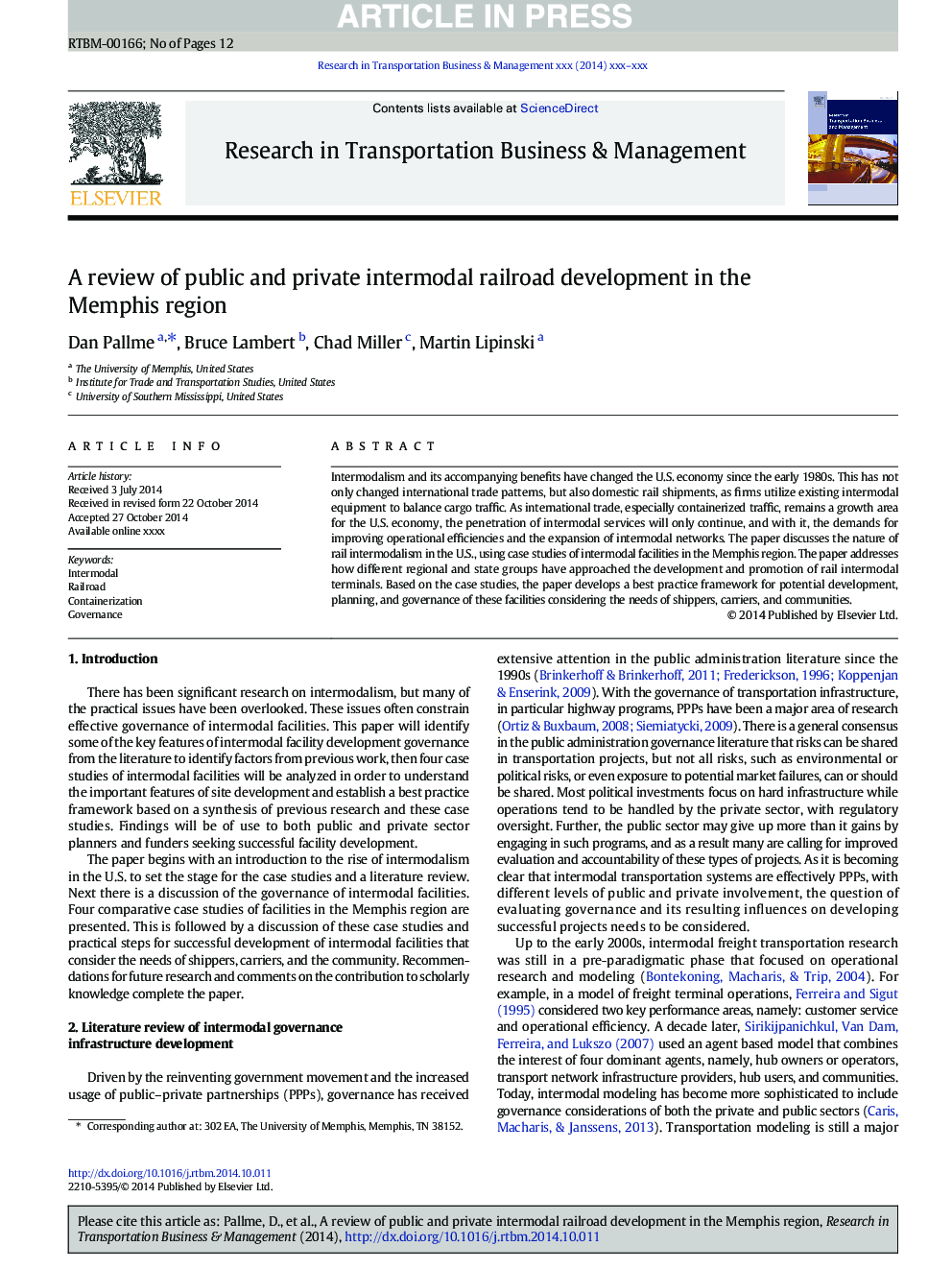| Article ID | Journal | Published Year | Pages | File Type |
|---|---|---|---|---|
| 7410408 | Research in Transportation Business & Management | 2015 | 12 Pages |
Abstract
Intermodalism and its accompanying benefits have changed the U.S. economy since the early 1980s. This has not only changed international trade patterns, but also domestic rail shipments, as firms utilize existing intermodal equipment to balance cargo traffic. As international trade, especially containerized traffic, remains a growth area for the U.S. economy, the penetration of intermodal services will only continue, and with it, the demands for improving operational efficiencies and the expansion of intermodal networks. The paper discusses the nature of rail intermodalism in the U.S., using case studies of intermodal facilities in the Memphis region. The paper addresses how different regional and state groups have approached the development and promotion of rail intermodal terminals. Based on the case studies, the paper develops a best practice framework for potential development, planning, and governance of these facilities considering the needs of shippers, carriers, and communities.
Related Topics
Social Sciences and Humanities
Business, Management and Accounting
Business and International Management
Authors
Dan Pallme, Bruce Lambert, Chad Miller, Martin Lipinski,
